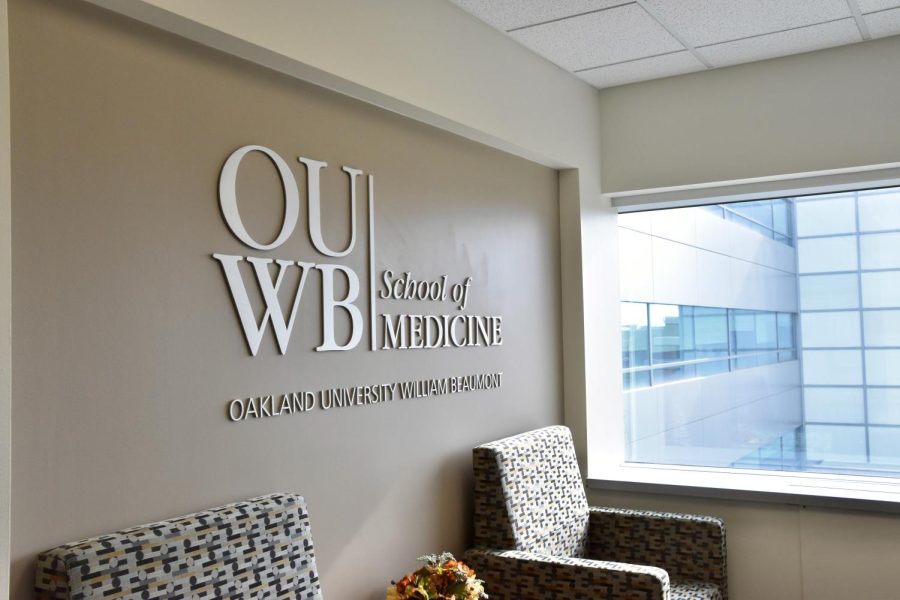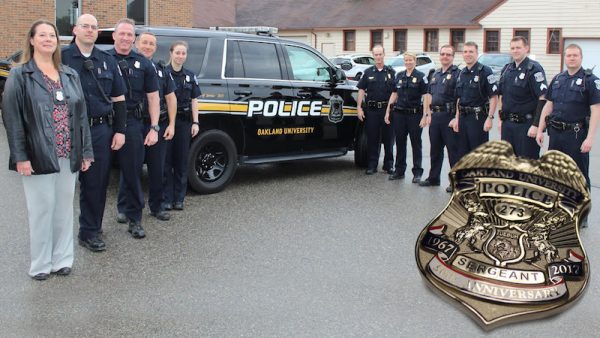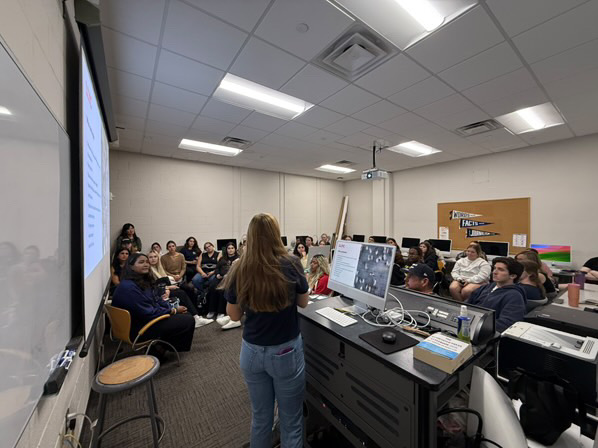OUWB students receive awards from American College of Physicians
The American College of Physicians (ACP) has recognized four OUWB students.
Four Oakland University William Beaumont School of Medicine (OUWB) students received recognition by the American College of Physicians (ACP) Michigan chapter during its annual scientific meeting.
According to its website, the ACP is composed of 161,000 internists, subspecialists, residents, fellows and medical students globally, and aims to provide education, practice resources and advocacy efforts for policy changes for a better healthcare system in the U.S.
The recipients of the awards are Tiffany Loh (M2), Faris Alkhouri (M2), Ryan Ko (M2) and Hassan Akram (M4). Each individual studied different topics of science and the stories behind their studies.
Loh (M2) was awarded first place in Clinical Vignette category and Best Medical Student Abstract.
“It feels really nice,” Loh said. “This was the first time I’ve ever written a case study, so to have it be selected as first place was a great feeling.”
Loh (M2) conducted a case study on a 59-year-old male with the most likely diagnosis of Granulomatosis Polyangiitis (GPA) during her rheumatology rotation through an internal medicine internship at Beaumont.
Granulomatosis polyangiitis is a rare autoimmune disorder (affecting 13 out of 1 million adults) that causes inflammation of small blood vessels across the body, particularly in the upper respiratory tract, lower respiratory tract and kidneys. According to Loh, the patient was asymptomatic but due to his severe decline in kidney function and hemoptysis, was instructed to follow up with nephrology
“This case was very interesting because typically patients present with a variety of symptoms but he almost presented with none,” she said. “Cases like this from my internship made me realize that in medicine, cases don’t always follow the typical characteristics we read in textbooks and learn in lectures and we will miss a diagnosis if we don’t consider every single diagnosis possibility.”
Alkhouri was awarded second place in the Clinical Vignette category.
“I feel great about being recognized,” Alkhouri said. “It was a really nice surprise to know that the work that I put into that case to present it in the best possible way and allow it to reach the intended audience paid off. It is an honor to be chosen to be awarded out of all these great presentations that were presented at that meeting.”
His case study involved a 25-year-old woman with a rash in the intermammary cleft following a two-week ketogenic diet.
“It seemed interesting at first how changes in diet were showing cutaneous manifestations in a matter of weeks,” Alkhouri said. “Then it became more about the condition itself. The manifestation of the rash as it accompanies ketonic metabolic state is fascinating and has not been studied extensively. Thus, shedding light on these associations can help physicians better advise their patients and provide better treatment for them.”
Ko (M2) was awarded third place in the Research category.
“The award is a recognition one way, but I felt more recognition from the communities that we [Ko and his co-authors] worked with,” Ko said. “Nevertheless, being recognized for that work is very important, so it’s been really nice to get that recognition.”
Ko’s study “Feasibility of a COVID-19 education campaign to improve vaccine acceptance in low-income communities.” The campaign induced same-day vaccination of seven individuals with 13 individuals who indicated that they might receive the vaccine in the near future.
Akram (M4) was awarded Overall Winner in the Quality Improvement category.
“This achievement means a lot to me,” Akram said. “There was a fierce competition with many talented individuals who are all as passionate, if not more, about medicine as I am. It was shown in their research as well, and it was an honor to participate alongside them.”
His study was focused on “Human Papilloma Virus (HPV) Vaccination uptake in HIV patients.” According to Akram, the project serves the purpose of evaluating the uptake of HPV vaccination and challenges in the HIV patients at Beaumont Hospital.
“Currently, patient concerns for vaccine safety, vaccine cost, and uncertainty about insurance coverage are barriers to overcome for adequate coverage,” he said. “In order to optimize the uptake, I hope that more patient-provider interaction in the future about the HPV vaccine can help overcome these barriers.”






